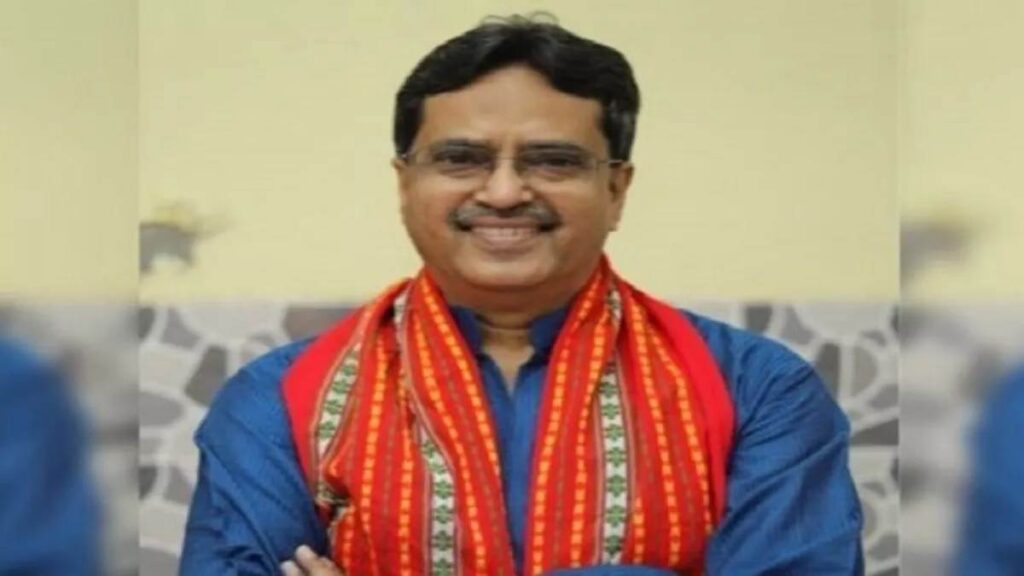Tripura’s Chief Minister, Manik Saha, recently underscored his commitment to preserving the indigenous culture and traditions of the state, placing the welfare of the Janjati, or tribal communities, at the forefront of his administration’s goals. He emphasized the importance of celebrating and safeguarding the unique heritage that defines Tripura’s diverse population, as these cultural roots play a pivotal role in the state’s identity. Recognizing the growing need to protect indigenous customs, CM Saha has introduced policies that align with the welfare and development of these communities while fostering a spirit of unity and cultural pride.
In recent addresses, CM Saha has acknowledged the historical contributions of the Janjati communities, emphasizing how their languages, rituals, art forms, and festivals are deeply intertwined with Tripura’s history. He has affirmed that these cultural elements not only shape the identity of the tribal communities but also serve as valuable cultural assets for the entire state. With globalization and rapid urbanization often threatening traditional ways of life, Saha believes that targeted policies are essential to ensure that the younger generation remains connected to their heritage while having opportunities for economic and social growth.
The Tripura government’s initiatives focus on cultural education and the promotion of traditional art and crafts. By introducing new schemes aimed at providing financial and institutional support to artists and artisans from the indigenous communities, the government aims to prevent these art forms from fading away. There are plans to set up cultural centers across the state, providing space for artists to collaborate, showcase their work, and pass down their skills to future generations. CM Saha hopes that this approach will create a steady platform for the state’s indigenous talent and preserve ancient crafts like handloom weaving, bamboo crafts, and indigenous music and dance forms.
Education has also been a key pillar in CM Saha’s vision for preserving indigenous traditions. Acknowledging that language is central to cultural identity, the government has introduced bilingual programs in schools, allowing tribal children to learn both their native dialects and the state’s official languages. This program aims to encourage linguistic pride among young learners and foster understanding among different communities. Additionally, the government has been funding scholarships for Janjati students, encouraging them to pursue higher education while staying connected to their roots.
Tourism forms another dimension of the government’s cultural preservation strategy. CM Saha has emphasized the state’s potential as a cultural tourism destination, highlighting the unique tribal festivals, fairs, and traditional performances that draw tourists. By promoting these aspects, the government hopes to create awareness and appreciation for the indigenous heritage and generate income for tribal communities. Plans are underway to host annual cultural festivals that showcase Tripura’s rich tapestry of music, dance, cuisine, and artisanal crafts, which will open up avenues for visitors to experience the state’s traditions firsthand.
Economic support is integral to the preservation efforts, as CM Saha believes that indigenous communities need not only cultural pride but also financial stability to thrive. Recently, the state introduced several welfare programs focused on improving healthcare, sanitation, and housing within Janjati areas. By providing infrastructural support, the government aims to create a better quality of life for the indigenous population while preserving their cultural essence. In particular, healthcare initiatives have targeted tribal areas, providing them with medical resources and healthcare workers who understand the cultural context of these communities.
CM Saha’s approach to preserving indigenous culture is also rooted in promoting social cohesion and inclusivity. He stresses that the various communities within Tripura are interconnected and that the state’s identity is enriched by the diversity of its people. His administration encourages cross-cultural events and programs that bring different groups together, allowing them to share and appreciate each other’s traditions. By fostering mutual respect and cultural exchange, the government seeks to cultivate a sense of unity within Tripura, where every community feels valued and respected.
Addressing the broader implications of these initiatives, CM Saha has voiced the government’s commitment to long-term sustainability. He believes that Tripura’s development cannot be achieved at the expense of its heritage and that economic growth should harmonize with cultural preservation. The government’s policies reflect an understanding that cultural heritage is a source of resilience and inspiration for indigenous communities, a sentiment that guides Tripura’s progress.
Through these efforts, CM Saha has reinforced the government’s dedication to upholding the dignity and heritage of Tripura’s indigenous population. As the state moves forward, his administration continues to work closely with Janjati leaders, seeking their input and involvement in shaping policies that affect their communities. This partnership aims to create a more inclusive and culturally aware Tripura, where every resident takes pride in their identity and history.

